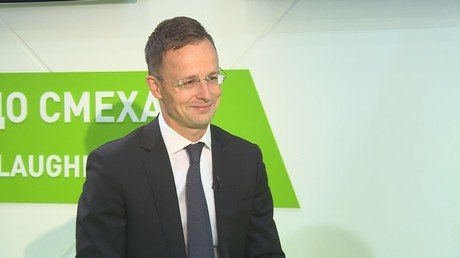European Commission head Jean-Claude Juncker has said it’s time for the EU to reconnect with Russia and stop “bashing” it, in surprising contrast to those in the West who have been piling blame and sanctions on Moscow.
Juncker spoke to an audience at a Brussels think tank event on EU reform. Though his statement had a few catches, the overall message was conciliatory.
“So we have to come back to, I wouldn’t say normal relations with Russia, but there are so many areas, so many domains, where we can cooperate in a better way with research and innovation and others. Not forgetting what our differences and divergences are. But this Russia-bashing has to be brought to an end,” he said.
Juncker’s call was not entirely conciliatory, though. He said the EU would never accept “what Russia did” to Ukraine and Crimea, referring to the violent 2014 coup in Kiev that brought the current Ukrainian government to power, and the subsequent referendum held in Crimea, which resulted in over 90 percent support for reunification with Russia.
One of the chief arguments for better relations is Russia’s sheer size. “We have to have in mind that the entire territory of the European Union is about 5.5m sq km. Russia [is] 70.5m,” Juncker said.
Yet, Russia’s size (which is actually a comparatively modest 17.1m sq km) didn’t stop the EU and its allies from jeopardizing diplomacy with a mass expulsion of Russian diplomats two months ago. A total of over 100 were sent back to Russia from more than a dozen countries, accused of being spies in disguise.
The expulsion was initiated by the UK in its ongoing push to blame the March poisoning of former Russian-British double agent Sergei Skripal and his daughter on Moscow. The UK itself led the way with 23 expulsions, but the US outdid everyone with 60. Most others limited the expulsions to one to four diplomats. Russia mirrored the act with an equal number of expulsions.
Not everyone was on board, though: Austrian Chancellor Sebastian Kurz stressed the need to build bridges and maintain a “mature, trust-based” relationship with Moscow amid the finger-pointing.
Juncker has previously drawn criticism for not being hostile enough towards Russia. In March, he congratulated Vladimir Putin on his election for a fourth term as Russian president, triggering the anger of mainstream officials and journalists alike.
Juncker’s words are indicative of a wider “discomfort” growing in the EU about the ongoing demonization of Russia, believes international politics lecturer Tara McCormack from Leicester University, especially since the US has kicked off a trade war on its trans-Atlantic partners with its metal import tariffs.
“I think Juncker is actually reflecting a broader sentiment in other EU states that whatever the differences, the relationship between the European Union and Russia needs to be somewhat normalized… I don’t think Russia will be looked to as a replacement [for the US] so much, but I think this potential trade war does reflect the kind of fissures in the relationship between the EU and America,” she told RT.
Like this story? Share it with a friend!


